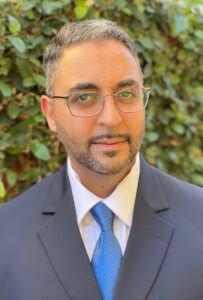For an Appointment Call: (209) 468-6820
Appointment Center and After Hours: (209) 953-6400 | Emergencies: 9-1-1

San Joaquin County Clinics Team Newsletter #3
Welcome to the June issue of the Pulse.
As we present our third issue of our recently launched team newsletter, we want to be sure you are finding it informative, interesting, and worthy of a few minutes of your attention. We encourage your suggestions for featured articles, employee spotlights, or ways to share operational updates.
informative, interesting, and worthy of a few minutes of your attention. We encourage your suggestions for featured articles, employee spotlights, or ways to share operational updates.
In May, we highlighted Women’s Health Month. June is the celebration of LGBTQ+ Pride, and it gives pause for thought about some of inequities that challenge health outcomes and access within this community. Learn more below about how SJCC’s collaboration with the Gender Affirmation Clinic sets the stage for inclusive and compassionate care.
In this issue we’re pleased to highlight another outstanding staff member. Khalil Rehman represents the passion and commitment of our team members that enables us to progress toward our vision of community health improvements. I hope that reading these staff spotlights makes you as proud to be a part of the SJCC team as it does me.
Finally, with summer in full swing, many of us anticipate the release of blockbusters (think Top Gun: Maverick and Jurassic World Dominion). Closer to heart – SJCC has some blockbuster news coming to our team members next week over three days (June 20th-22nd) at our administrative offices, French Camp and Stockton centers. No popcorn or sodas (we are a health center, after all), and no CGI, but exciting news, nevertheless. Please look for more details in the days ahead.
With that, I wish a safe and enjoyable summer for everyone – I encourage you to step out and find some fun outdoor activities and social connections in the months ahead.


Outpatient Clinic Assistants (OCAs) are essential members of patient-centered clinical care teams at San Joaquin County Clinics. They play a vital role in communicating with patients and supporting physicians. They help our patients feel at ease and explain physician’s instructions. San Joaquin County Clinics is fortunate to have a number of committed OCAs, and Khalil Rehman is one of them.
 Khalil and his parents and siblings emigrated to the U.S. from Pakistan in 2005. Khalil was 17 and spoke very little English but was driven to find a way to help people in his new country. Having a chronically ill mother that he cared for and an uncle he looked up to who was also a Nurse Practitioner, Khalil developed his great interest in working in health care.
Khalil and his parents and siblings emigrated to the U.S. from Pakistan in 2005. Khalil was 17 and spoke very little English but was driven to find a way to help people in his new country. Having a chronically ill mother that he cared for and an uncle he looked up to who was also a Nurse Practitioner, Khalil developed his great interest in working in health care.
Over time he decided that becoming a medical assistant would be his entrée into health care. He signed up for a medical assistant training program still speaking almost no English. But, through hard work, dedication, and a trusty pocket dictionary, he was able to learn English and complete the program at the top of his class. He then went on to complete EMT training as well.
Khalil has now been an OCA at SJCC for more than five years, working with primary medicine and family medicine. He helped with the start-up of the Manteca Clinic and worked there while it was open and is currently based at the Stockton (California Street) clinic supporting Dr. Randeep Johl.
Khalil enjoys working at SJCC because of its learning environment and diverse patient and employee populations. He values learning as well as teaching. Having become a “super user” of our Cerner EMR, Khalil now is able to train new staff and troubleshoot issues with Cerner. Speaking several languages including Punjabi and Urdu, he can communicate and build trusting relationships with many of SJCC’s multilingual patients.
Living in a household that includes his parents, Khalil lives a remarkably busy and full life with his work, caring for his mother, and his own family with two young children (ages three and five). It’s a close-knit family, with five other siblings living locally. Despite all these commitments, he still has time for his other passions including the sports of cricket and tennis.
When asked to think about the future, Khalil naturally focuses on his parents, siblings, and children and their health and success. But, asked specifically about his plans, he expresses the desire to continue to grow in knowledge and responsibilities at SJCC and to eventually become a nurse (when time allows).
We have every confidence that whatever patient-focused role Khalil chooses in the years ahead, his communication skills and compassion will make an impression and an impact for those being served.


We honor the diversity among our patients, and with that our commitment to provide inclusive health care. Many in the LGBTQ+ community experience the ramifications of social inequality that is often associated with poorer health status. At San Joaquin County Clinics, not only do we provide equitable care but also expand access to care that serves specific health care needs.
SJCC’s gender affirmation clinic is such a service.
“The care our patients receive is multifaceted, including needed hormone therapy and general health care services,” states Dr. Robert Assibey, one of the gender health providers. “We are able to provide something that is not routinely provided. But it’s more than giving people appropriate care, it’s about improving quality of life and helping them achieve their personal goal of being their true selves.”
That’s important to Eric Abarca, outpatient clinic assistant at California Street.
“SJCC is welcoming,” says Eric. “Here, I am able to be myself. Everyone has been good to me, loving and very supportive. I know some people don’t get that same experience in their workplace.”
Eric hopes to be able to use his experience to help patients who may be struggling with their identity, and adds, “I have been through it, so I would be supportive with someone who may be struggling. It can be difficult for others. There are too many stories, too many tragedies. Here we have an opportunity to make them feel welcome.”
Asked what else we can do in the clinics, Eric was quick to say, “Rainbow flags! The colors send a message of welcoming. And if I was a patient walking through the door, seeing those colors will give me a sense of relief. I can breathe and know I can just be who I am.”
 As a complement to primary care services, SJCC is expanding efforts to assist patients in accessing social service supports that can help them thrive. The program, called Enhanced Care Management (ECM), is a piece of a larger comprehensive Medi-Cal program restructuring targeting the program’s most vulnerable beneficiaries.
As a complement to primary care services, SJCC is expanding efforts to assist patients in accessing social service supports that can help them thrive. The program, called Enhanced Care Management (ECM), is a piece of a larger comprehensive Medi-Cal program restructuring targeting the program’s most vulnerable beneficiaries.
In partnership with Health Plan of San Joaquin, the county’s largest Medi-Cal health plan, the efforts began early this year to engage clinic patients who lack stable housing and are dealing with one or more chronic health conditions, or those who visit the ER frequently.
“ECM capitalizes on what was learned through San Joaquin County’s Whole Person Care pilot,” says SJCC’s John Sisneroz, “and is focused on directing outreach, referrals, and services to our most vulnerable patients.”
Identifying those patients through data or provider referrals is one thing but getting the patients to engage in the process requires a trusted connection and appeal. “We have open discussions and do a psychosocial interview to identify their needs — food, housing, transportation – anything they may need to help their trajectory of life. We let them know we want to help,” says John. While some patients are initially hesitant, most are receptive once they realize there are supports available to them that can help them achieve better health and wellness.
An initial target list provided by HPSJ of roughly 300 eligible members has yielded nearly 50 SJCC patients being supported in the first 6 months of the program.
A key element of the program’s ongoing success is the network of partnerships required to deliver the social services and to prevent patients from falling between the cracks. SJCC is working with partners such as the Housing Authority, Emergency Food Bank, Central Valley Low Income Housing, Gospel Center Rescue Mission, and others to ensure that patient referrals are successful.
“We’re seeing some immediate successes such as patients accessing housing vouchers and medically tailored meals,” says John. Longer term, program success will be measured by improved medical outcomes for those being served, reduced ER utilization and demonstration of stable housing.
While ECM is part of a statewide effort, it’s clear that the success of the program at a local level relies heavily on organizations that have built trust with patients and among community partners. SJCC is excited by the opportunity to engage more patients in the program, and to continue its leadership and collaboration as we work throughout our region to improve health for those we serve.
While our case managers are reaching out to an identified list of patients eligible for the program, SJCC team members who encounter or know of patients who may qualify can also make a referral. Use the “Communicate” option in Cerner to send a message to the ECM Pool with a brief description of why the patient meets criteria (homeless, high ER utilization, etc). Your contributions can help us engage more patients in this potentially life-changing new Medi-Cal benefit!